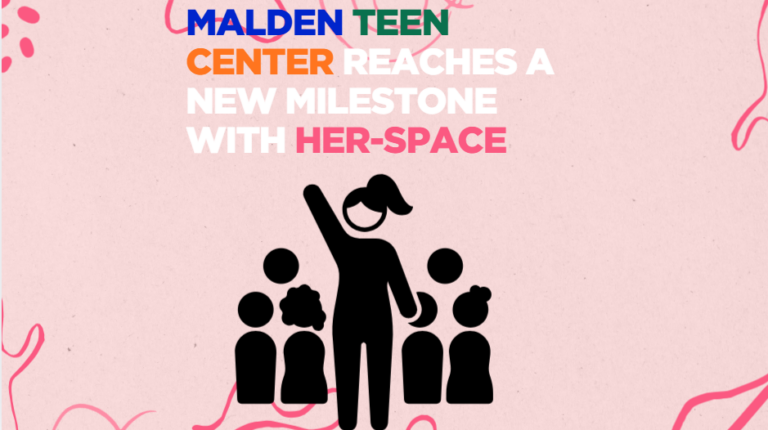
Your thumb has a mind of its own. It keeps on scrolling, scrolling, and scrolling. Your eyes forget to blink and become desensitized to it all: the images, the videos, the news. You don’t think twice about that report due tomorrow or your bad day. You’ve been sucked into an endless world. It’s hard to get out of it. You want to get out of it. You need to get out of it.
How do you get out of it?
You’ve probably felt the familiar feeling of boredom and unproductivity while doom-scrolling on Instagram, YouTube, or TikTok. It’s hard to get out of the trap, but that’s what social media is designed for: to suck you in, especially with the rise of phone and tablet use in the last few years. There’s a good reason terms like “iPad kids” and “brain rot” have been thrown around a lot since 2024.
Who Uses Social Media the Most?
The most common social media users are usually adolescents. After all, you probably remember the joy of getting your first phone at around 12 or 13 years old. It’s the stereotype that teenagers spend most of their time looking down at a phone. However, adults have their fair share of social media use as well, which might be because they feel “out of the loop”, counselor Kristy Hardy admitted. Teacher Anne Mooney mainly says she uses TikTok to “view news and politics.” Freshman Minerva Davenport would also say that “millennials and Gen Z” use social media the most. According to Hopkins Medicine, “almost 40% of children aged 8 to 12 use social media.”
So, before you sit down and read this article, this article isn’t just directed at the many phoneaholic teenagers in this school. It’s directed at the adults, the parents, the teachers. Everyone! So strap right in and learn about the mess that is social media. (P.S. Turn off your phone before reading this.)
The Decline of Netiquette and Health

Netiquette is “digital etiquette,” which is the practice of being respectful and friendly online. Netiquette is also something that’s slowly going unnoticed.
Plenty of people are concerned and acknowledge how social media affects mental health. Hardy commented that there has been an “increased depression rate” over the last decade or so due to the rise of social media. A lot of things you see online are “not necessarily real” or just Photoshop, and even then, seeing so much success and exaggerated expectations online can be “very isolating,” and make you feel like you aren’t enough. Social media is “a place where unrealistic standards thrive,” causing a rise in toxicity, Davenport believes. Many eating disorders are influenced by the unrealistic images you see on social media. When you see everyone with the same body type, you can feel out of place.
There’s also the fact that doom scrolling and spending so much time looking at bright screens can affect your sleep and behavior. Lots of people acknowledge how attention spans get lowered by short-form content. You can’t focus because “you’re so used to scrolling through Instagram or TikTok,” counselor Amy Yu stated. “Everything is going so fast, and that does not correlate with classwork or reading a book; you don’t get that quick satisfaction,” said Mooney. As a result, social media can affect your schoolwork and distract you from your responsibilities or hobbies.
Generally speaking, people online are unfiltered, often failing to consider everyone’s unique experiences. It’s not even that it doesn’t exist in our real world; it’s that it has been normalized to be a cyberbully. When you see everyone clickbaiting, arguing, or disagreeing, you may start to internalize that intervention is not needed, and that you’re wrong for having an opinion.

When hiding behind a screen, you might forget to view the person on the other side as a human being; a “dehumanizing aspect,” Mooney claimed. You might instead see them as a profile picture, so that you can be unfiltered and on a high horse. In reality, it’s “a very cowardly way for people to pick on people,” Hardy thinks. It’s “so much easier” to become a bully “behind a keyboard.” As a result, social media “has made teenagers lack empathy and compassion,” Davenport claimed. “These are real people with real experiences,” and you don’t know “what they’re going through,”Mooney exclaimed. “When you can pretend it’s not a real person,” you can feel way too confident with what you say.
Before you say something online, consider how confident you would actually be to say this face-to-face with someone. If you think it’ll end with you being punched instead of them smiling, you might want to reconsider what you’re saying. The worst part is that you don’t learn. Not only can you “hide your identity and feelings,” Hardy commented, but “you can’t see the other person’s facial expressions.” In real life, if you hurt someone, immediate feedback gives you the message that you hurt someone. As a result, “you can say something you don’t actually mean,” Yu added.
It doesn’t feel good when you hurt someone. So why do some people feel good about hurting someone online? It’s because the aggressor secretly feels sad and insecure about themselves. Taking someone else’s confidence away can almost make you feel superior, when in reality, they’re just being cowardly and afraid to deal with your insecurity. It’s so easy to target people online: the naive, the disabled, the neurodivergent, the transgender, the list is endless. It’s especially easy to do this online when you feel like no one can touch you. You’re invincible, but you’re not. People will get sick of you one day. You’ll get sick of yourself one day! Hurting people will eventually make you feel worse, ultimately making the idea you feel “superior” come back into feeling “inferior” all over again.
Not to mention, a lot of children also use social media and probably don’t have the emotional skills to understand people online who also have feelings. It’s mainly just “lazy kids who don’t know how to read” who plague annoying comments online, freshman Jeremiah Christalin thinks. Kids are new to the internet and can be attention-seeking. Hence why you might run into a bit of a perturbing spam comment or a pesky troll.

Speaking of kids, one problem with the rise of social media is also the rise of kid influencers, in which kids are often forced by their parents to be in social media videos. On the surface, it may look like flawless fun, but in reality, constantly shoving your children in front of a camera and exposing them to a live audience is only milking them and making it hard for them to develop their identity.
There are also hundreds of family channels that profit from their kids’ misfortune. They will clickbait or exaggerate bad things happening to them, which could embarrass their children or make them feel dehumanized. Kids and teens especially need privacy in their life, and don’t need all this extra attention drawn to them on YouTube or Instagram. How would you feel if all your life was just cameras, fame, and money? Mooney tries to keep her children off her social media due to the lack of “privacy and consent.” While we’re talking about exaggerating bad things…
The Enragement That Is Ragebait

“The MadeUpUsername Situation Is Absolutely INSANE!”
“The END of MadeUpUsername…He FINALLY Messed Up!”
“MadeUpUsername is a DISGUSTING Creep…”
Do these titles look familiar? If you engage yourself in the occasional petty YT drama, you might recognize these title formats and thumbnails. It’s quite obnoxious, but there’s a huge jump between being annoying and dangerous.
This type of content is known as disinformation. You already know that misinformation is when incorrect information is accidentally spread around. So what happens when misinformation is INTENTIONALLY spread to create rumors and start anger? Well, we call that disinformation! It’s information that people know is incorrect or blown out of proportion, but they know it’ll “stir the pot,” of drama and “entice people to argue,” Hardy argued.
Ragebait is a specific type of disinformation. Have you ever hated when you click a video or news link in hopes of seeing something, only to not see it at all in said media? You just got clickbaited! However, you learn from being clickbaited not to trust everything you read online. When you get ragebaited, it can be a different story. Returning to the thumbnails and titles earlier, when you get clickbaited into a story detailing exaggerated or dramatized conflicts, you get ragebaited. It’s stylized to make you angry—to think things won’t get better, and you must be unhappy and spread the word about it. Mooney summarized it as “people who purposefully say absolutely horrific things just to get people mad,” and get attention.
The main problem with disinformation and ragebait is the fact that it perpetuates drama instead of trying to end it. When drama continues, nothing gets resolved, and it ends with people unhappy. People have been unjustly doxxed, banned, harassed, or even hurt themselves due to this problem. How can you celebrate people getting harassed or accused of serious things? It’s just miserable to look at.
A good example of the toxic effect of misinformation spreading was the Boston Marathon bombing. People on Reddit tried to find suspects. It’s not that working together for a greater cause isn’t bad; in fact, when more people know about a cause, more awareness of it is raised. However, the subreddit ultimately caused more harm than good.
People randomly accused missing college student, Sunil Tripathi, of being the bomber, and his family was badgered repeatedly. Even official news sources used the story, even though it was definitely unverified! Ultimately, the true Boston marathon bombers were eventually found, but the damage was still done. Depressingly, it was later found out that Triphati had died from suicide a month before the bombing even occurred. A dead man was accused of being a bomber just because some random people online thought they were right. The spread of disinformation is truly a toxic cycle.

You can see a more dramatic simulation of how toxic media cycles can cause needless war in this game by indie developer Nicky Case. (Violence warning)
Social media platforms like the infamous Twitter (now known as X) can be especially filled with arguing and endless anger. Twitter “is a constant place where misinformation is spread, especially since anyone can be verified,” Davenport argued. When you just read and read on, hearing about all the terrible things in our world, such as politics, war, and everything in between, you start to feel bad. If you want to feel better, don’t forget to seek positive things as well, and not just focus on the hate.
Incredible Credibility
Another thing to consider about social media is that most of it is exaggerated or straight-up lies. It’s not that all of the information you see online is false; in fact, it’s often encouraged to read sources online and get information to learn about various things. But also consider that when we say “sources”, we mean reputable websites. Social media like Twitter, YouTube, and TikTok can have a bias or misinformation tinted in them. Hardy does not think social media is “reliable at all. Anybody could post, but it’s not necessarily a credible source.” When you don’t investigate further and believe everything you see online, it can distort your perspective on the world.

This is becoming more problematic, especially with the rise in fake accounts, bots, and AI. With the use of deep fakes, “people can even pretend to be other people and make an account under their name,” tricking everyone and spreading rumors, as Hardy said. Aside from spreading fake news, bots can also be used by especially scummy people to trick vulnerable people into giving them their sensitive information. It always “has to be from the right source,” Yu proclaimed. And keep in mind, even reliable sources can still have a bit of bias towards them. Try and keep objective.
Responsible Social Media Use
So with all this said, you might be worried that social media is a dumpster fire that is dangerous to use. Well, despite all the bad things about it, social media can still be a decent place online. For one thing, “social media is good to connect with people” and make friends, Davenport admitted. Mooney also thinks that “social media is very powerful in spreading your story,” such as seeing victims of Palestine or Sudan “sharing their awful experiences,” allowing us to empathize and learn about stuff we may not see on official news sources.
You can use social media to spread your interests and discover things relating to them. It can be used as a sort of tool to help you grow and learn more about yourself. You can also feel more confident online and have the courage to talk about more serious topics that might be hard to bring up in real life, using social media to bolster your mental health instead of damaging it. In reality, not all of social media is inherently bad; you just have to use it responsibly! It may take some work, but with the right tools, you can do it.
Generally speaking, avoid giving social media to young children, especially ages 2 – 7. Your job as a parent is to care for your children, let them explore the world, not give it up to a tablet. Give them their first phone or tablet around the ages of 11 – 13. Even then, at around that age, there’s still a lot to know about responsible social media use. First of all, “A great way to improve your relationship with social media and help decrease the negative effects is to decrease your daily screen time,” Cultivating Health claimed.

It may be hard to do this, considering we have screens all around us, but there are simple ways of slowly breaking the habit. For example, distract yourself from your phone by taking walks, going to the park, or reading a book. The more you do something, the more likely you are to keep doing it. You can also try setting limits on your phone, so you’re more wise with how much screen time you have. Many people have various amounts of social media usage time, ranging from “one hour” to “half a day.” You don’t have to go down to one hour immediately; instead, try slowly adapting yourself to using your phone less and making the most of your screen time.
Figure out what times are best for you to use social media. Yu finds it fine to use it “when you’re winding down and finished with the day,” but you don’t want to be on it “all the time” because it can preoccupy you from having a life.
You can be responsible when you’re online as well! For one thing, avoid falling into rage bait and disinformation traps. They’re everywhere online, but a simple way to see them less often is simple: tell the platform you’re “not interested.” Don’t watch them and change your settings. When you stop perpetuating drama, it eventually will die down, ultimately pausing the toxic cycle. You can even try and put your positive commentary into the situation.
Try and educate yourself on recognizing the difference between facts and opinions, because most drama online is based solely on opinion. Also, try and “agree to disagree” when people fight over petty or silly things online. Don’t get worked up if someone doesn’t like what you want or vice versa. Simply respect each other.
Make sure you use reputable sources and look into anything you question, as most of the internet is subjective. Even this article is subjective. There’s a good chance there’s more to the story than just a headline. For example, let’s say you run into a TikTok story talking about how an actor from your childhood is now a criminal. You look into it and realize that it’s just claiming that two people of the same name are the same people. You do some more digging and quickly determine they’re not the same people. Trust your intuition!
Lastly, be wise with everything you do online. You’ve probably heard the rule that you should talk online as if you were talking to your grandmother. In other words, don’t be a jerk. Even if you think you’re telling a joke or being funny, what you say online can affect someone else. Try to be empathetic, and rethink what you write before you send it. Mooney suggested “if you have a thought, get a journal” so you can write out your opinions before ranting online, because then you may realize how silly they are, and to avoid saying “everything to the world.” Get online friends who support you and have a positive impact on your life. And don’t forget to log out occasionally to see your real-life friends as well!
Also, keep in mind that most of your posts will be public to the entire world to see. Someone could take advantage of your sensitive information and use it against you in the future. It may be a good idea to set some accounts as private, so only trusted friends can seek you, and “make sure you know who follows you,” Davenport suggested. Remember, you are not invincible in real life or on the internet. Irresponsible actions online can easily translate into your reality.
Conclusion

Social media is a strange world. It’s like fast food; the more you have of it, the more adverse effects it has on you. There’s a lot wrong with it: the clickbait, the lying, the doxxing, the harassing, and the adverse mental health effects. However, there’s still some good sprinkled into it. If you can use social media responsibly, you can find all that good and have a healthy screen time relationship. Respect others online and in real life. Good things will come for you. And don’t forget to get off that phone once in a while!
So, tonight, before you head off to bed…don’t let your thumb control you. Control your thumb. Just a click away, and your phone will be off.
That switch doesn’t just turn off your phone.
It turns your mind back on.




